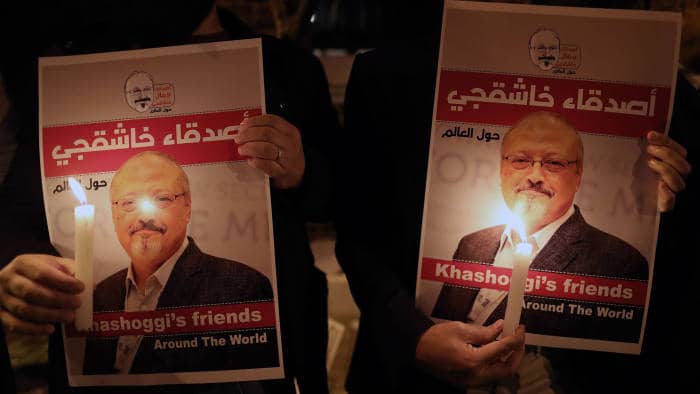Turkey will continue its efforts to shed light on the Khashoggi murder

The murder of Post contributing columnist Jamal Khashoggi was arguably the most influential and controversial incident of the 21st century, barring the Sept. 11, 2001 terrorist attacks. No other event since 9/11 has posed such a serious threat to the international order or challenged the conventions that the world has come to take for granted. That, one year on, the international community still knows very little about what happened is a serious source of concern. Whether all aspects of the Saudi journalist’s death will ever come to light will determine what kind of world our children will live in.
In the wake of Khashoggi’s demise, my administration adopted a policy of transparency. Over the past year, Turkey’s intelligence and law enforcement agencies, along with diplomats and prosecutors, cooperated closely with their counterparts and took steps to keep national and international audiences informed. Turkish authorities shared their findings with Saudi Arabia as well as other countries, including the United States, Russia, Germany, France and the United Kingdom. We have also cooperated with the international investigation led by Agnes Callamard, the U.N. special rapporteur on extrajudicial, summary or arbitrary executions. Finally, we have requested that Saudi Arabia extradite Khashoggi’s murderers to Turkey, where they committed the crime.
Turkey’s response to The Post contributing columnist’s killing is based on our desire to uphold the rules-based international system. Hence our refusal to let the Khashoggi murder be portrayed as a bilateral dispute between Turkey and Saudi Arabia. Turkey has always seen, and continues to see, the kingdom as its friend and ally. My administration, therefore, made a clear and unmistakable distinction between the thugs who murdered Khashoggi and King Salman and his loyal subjects.
Our long-standing friendship, however, does not necessarily entail silence. Quite the contrary, as the Turkish proverb goes, “A real friend speaks bitter truths.”
The 15-member assassination squad that murdered Khashoggi inside Saudi Arabia’s Consulate in Istanbul and chopped his body into pieces served the interests of a shadow state within the kingdom’s government — not the Saudi state or people. Had we believed otherwise, this atrocity would have indeed been treated like a bilateral problem. However, we continue to see what happened as a question of justice rather than politics, and maintain that national and international courts alone can deliver justice.
Khashoggi’s assassination was a tragedy but also a blatant abuse of diplomatic immunity. That the murderers traveled on diplomatic passports and turned a diplomatic building into a crime scene — and were seemingly assisted in the attempted coverup by Saudi Arabia’s top diplomat in Istanbul — set a very dangerous precedent. Perhaps more dangerous is the impunity that some of the killers seem to enjoy back in the kingdom.
It is no secret that there are many questions about the court proceedings in Saudi Arabia. The near-complete lack of transparency surrounding the trial, the lack of public access to hearings and the allegation that some of Khashoggi’s murderers enjoy de facto freedom fail to meet the international community’s expectations and tarnish the image of Saudi Arabia — something that Turkey, as its friend and ally, does not desire.
There is an effort underway to justify this lack of transparency with reference to national security. There is a very thick line between doing everything in one’s power to deliver terrorists to justice and committing premeditated murder over the target’s political views. The kidnapping of Nazi war criminal Adolf Eichmann, for example, was perfectly legitimate. Yet it would be ridiculous to suggest that Khashoggi’s killing served the cause of justice in any way, shape or form.
Going forward, Turkey pledges to continue its efforts to shed light on the Khashoggi murder. We will keep asking the same questions that I raised in an op-ed for this newspaper last year: Where are Khashoggi’s remains? Who signed the Saudi journalist’s death warrant? Who dispatched the 15 killers, including a forensic expert, aboard the two planes to Istanbul?
It is in our best interest, and in the best interest of humanity, to ensure that such a crime is not committed anywhere again. Combating impunity is the easiest way to accomplish that goal. We owe it to Jamal’s family.





